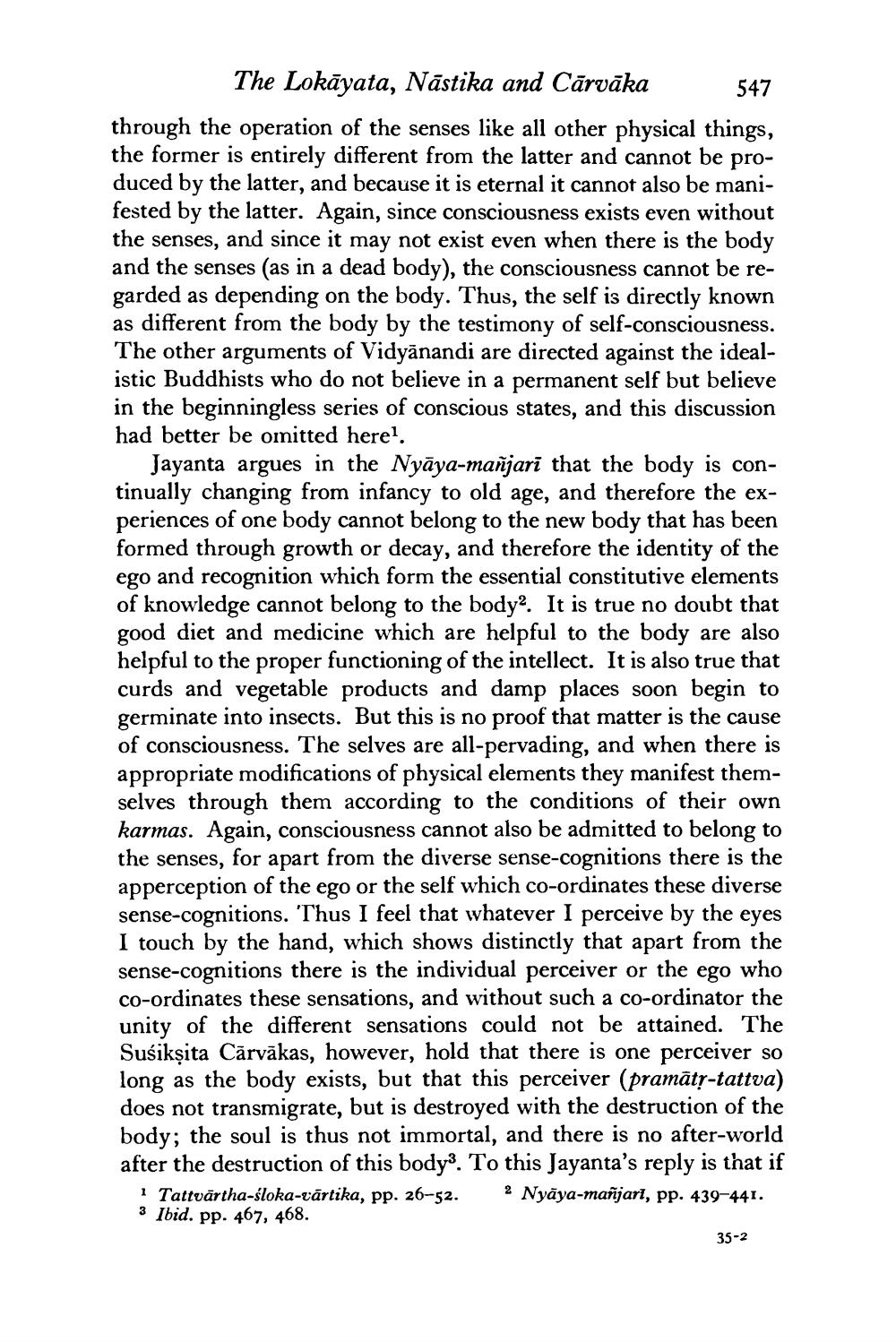________________
The Lokāyata, Nāstika and Cārvāka 547 through the operation of the senses like all other physical things, the former is entirely different from the latter and cannot be produced by the latter, and because it is eternal it cannot also be manifested by the latter. Again, since consciousness exists even without the senses, and since it may not exist even when there is the body and the senses (as in a dead body), the consciousness cannot be regarded as depending on the body. Thus, the self is directly known as different from the body by the testimony of self-consciousness. The other arguments of Vidyānandi are directed against the idealistic Buddhists who do not believe in a permanent self but believe in the beginningless series of conscious states, and this discussion had better be omitted here!
Jayanta argues in the Nyāya-mañjarī that the body is continually changing from infancy to old age, and therefore the experiences of one body cannot belong to the new body that has been formed through growth or decay, and therefore the identity of the ego and recognition which form the essential constitutive elements of knowledge cannot belong to the body. It is true no doubt that good diet and medicine which are helpful to the body are also helpful to the proper functioning of the intellect. It is also true that curds and vegetable products and damp places soon begin to germinate into insects. But this is no proof that matter is the cause of consciousness. The selves are all-pervading, and when there is appropriate modifications of physical elements they manifest themselves through them according to the conditions of their own karmas. Again, consciousness cannot also be admitted to belong to the senses, for apart from the diverse sense-cognitions there is the apperception of the ego or the self which co-ordinates these diverse sense-cognitions. Thus I feel that whatever I perceive by the eyes I touch by the hand, which shows distinctly that apart from the sense-cognitions there is the individual perceiver or the ego who co-ordinates these sensations, and without such a co-ordinator the unity of the different sensations could not be attained. The Suśikṣita Cārvākas, however, hold that there is one perceiver so long as the body exists, but that this perceiver (pramātr-tattva) does not transmigrate, but is destroyed with the destruction of the body; the soul is thus not immortal, and there is no after-world after the destruction of this body3. To this Jayanta's reply is that if
1 Tattvārtha-śloka-vārtika, pp. 26-52. ? Nyāya-mañjarl, pp. 439-441. 3 Ibid. pp. 467, 468.
35-2




